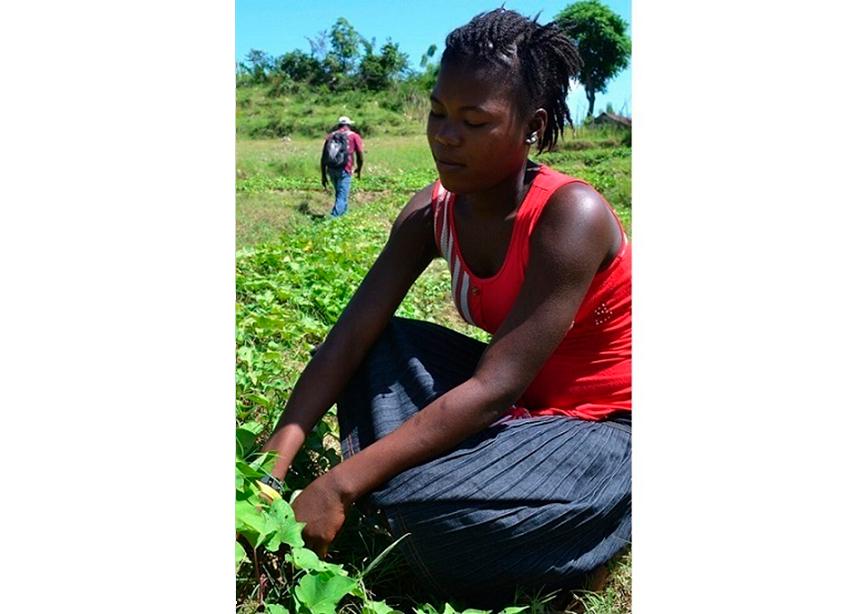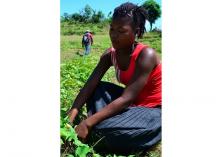Jane Fonda received lots of criticism last year for travelling to Alberta to criticize future pipeline construction.
Media outlets, including the Winnipeg Free Press, noted the apparent inconsistency between her comments about fossil-fuel extraction and how she flew to Alberta, used a helicopter to tour the oilsands, had her voice amplified by a microphone powered by electricity, and spoke in a building heated to keep out the cold of a Canadian winter.
On all those charges, Fonda can be found guilty. But so could everyone else concerned about climate change who flies, drives a car, lives in a heated house or uses electricity.
That includes me.
It’s one of the conundrums of our time. Climate change is a significant issue. It threatens everyone on the planet, but modern life is pretty much impossible without the use of fossil fuels.
The conundrum of being concerned about climate change but being reliant on fossil fuels is especially troubling for international relief and development organizations, such as the Canadian Foodgrains Bank, where I work.
For example, every year we support programs that help poor farmers in the developing world deal with the effects of climate change, people who need to grow their own food to survive. These effects include unpredictable and dramatic weather events, erratic or non-existent rainfall, or serious disasters brought on by droughts and floods.
At the same time, every year we need to travel thousands of kilometres to visit these programs, checking on progress, meeting the project participants, ensuring accountability and providing training—and generating the very CO2 emissions that cause climate change.
It’s a serious and troubling contradiction.
There are two ways we are responding:
• First, we try to limit our travel and use other forms of communication.
• Second, we track the CO2 emissions generated by our various forms of travel, as well as other energy use. At the end of each year, we tabulate the amount of carbon we have generated and make a contribution to our climate fund, at a rate of $25 per tonne of carbon.
Since 2013, when our climate fund was created, the Foodgrains Bank has contributed more than $56,000. Together with money contributed by people and churches from across Canada, a total of $77,000 has been raised for the fund.
Every year, we choose a project in the developing world to receive money from the fund. The money is used by our member organizations to help poor people adapt to the effects of climate change.
This year, the money is being used to support people such as Yvette Nicholas in Haiti. She hasn’t been growing her own food for very long, but she knows things are different today than when her parents were her age. “The older people taught me that rain started in April,” says the 19-year-old. “Now people are planting their gardens in June and July because there’s no rain.”
Across Haiti, rainfall patterns have become erratic over the past number of years. Farmers say they can no longer predict when rain will come. In 2015, the situation was exacerbated by El Niño, which put the country in the grip of one of the worst droughts in living memory.
Through Mennonite Central Committee Canada, a Foodgrains Bank member organization, we are assisting Nicholas and 150 others in her community with agriculture and reforestation training and other assistance—things such as seeds, trees to hold soil on the steep hillsides, fencing to keep animals out of gardens, and farming advice.
Despite the challenges, Nicholas saw progress with her garden. “These peanuts that I planted, there wasn’t much rain, and I didn’t get as much as I wanted, but I bought two chickens with what I made from them,” she says.
Although the Foodgrains Bank can’t make it rain for Nicholas and the millions of other small-scale farmers in the developing world who are affected by a changing climate, we can do some things to help.
This includes tracking our carbon emissions through our climate fund.
We invite others who are concerned about climate change to join us—individuals, churches, businesses and other groups.
Everyone is welcome, including Jane Fonda.
John Longhurst is the resource and public engagement coordinator at the Canadian Foodgrains Bank. As part of his effort to combat climate change, he takes the bus to work. This article originally appeared in the Jan. 18, 2017, issue of the Winnipeg Free Press.
See also:
Creation care in action
‘I’m pretty earnest about living responsibly
Getting unfrozen about climate change



Add new comment
Canadian Mennonite invites comments and encourages constructive discussion about our content. Actual full names (first and last) are required. Comments are moderated and may be edited. They will not appear online until approved and will be posted during business hours. Some comments may be reproduced in print.